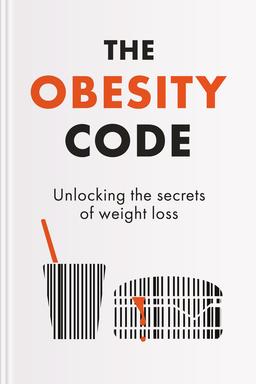Remember that mid-morning or late-afternoon hunger that makes your stomach growl like a tiny drum? It's annoying (and sometimes a little embarrassing) if someone notices. But what if skipping a meal could actually give you more energy and help your body feel healthier?
Intermittent fasting (IF) is like pressing a mini "reset" button for your system, letting it recharge while you go on with your day. The secret is learning how to do it the right way, so you can enjoy the benefits without feeling miserable — or hangry!
That's where guidance matters. Our Headway Team handpicked three books that turn fasting into a friendly, practical adventure rather than a punishment — helping you feel great without becoming a grumpy snack-seeker.
Intermittent fasting books and methods
Intermittent fasting is a popular tool for getting back on track with digestion and improving body shape. It doesn't require much change from your usual day. For those just starting, Headway recommends 'The Fast Diet: The 5:2 Method' by Dr. Michael Mosley and Mimi Spencer. Their literary style is gentle and accessible, making fasting easier to ease into.
Trying the 5:2 method means you can eat how you usually do 5 days a week. On the remaining 2 days, you'd have to cut the daily intake to 500–600 calories. It's an approachable way to experience the benefits of fasting without feeling too overwhelmed. You can still enjoy most meals while reaping real benefits.
For a more immersive approach, 'Life in the Fasting Lane' by Dr. Jason Fung, Eve Mayer, and Megan Ramos reads like a roadmap for real life. It mixes science with personal stories, explaining how fasting balances hormones — especially insulin — and how to handle tricky food situations, like office pizza parties.
While the 5:2 method involves fasting two days per week, Dr. Fung advocates for daily 16:8 or longer fasting schedules. And remember, fasting isn't punishment — it restores energy, sharpens focus, and balances your might and rhythm.
The best book on fasting for scientific understanding
If you're a "show me the science" person, your best pick to read is 'The Obesity Code' by Dr. Jason Fung. He flips the diet world on its head: instead of going down the classic road of "less calories" advice, he focuses on hormones. Dr. Fung highlights that when insulin stays high for too long, your body stops responding properly and starts storing fat.
Fasting isn't about starving; it's about giving your body a chance to burn stored fat naturally. Think of it as switching your metabolism from "hoard mode" to "fuel mode."
Dr. Fung breaks down the science so it actually makes sense — no PhD required. Fasting becomes less of a trendy buzzword and more of a smart "reset button" for your metabolism, supporting better health and longevity.
Once you understand how your body works, other fasting plans, even the 5:2 diet, suddenly make sense. It's like your metabolism finally handing you the instruction manual — and you're ready to use it.
'The Obesity Code'empowers readers to fast with confidence, make informed decisions, and embrace fasting as a sustainable lifestyle. With science on your side, skipping meals no longer feels intimidating — it becomes an empowering tool to improve metabolism, boosting your energy levels and overall well-being.


